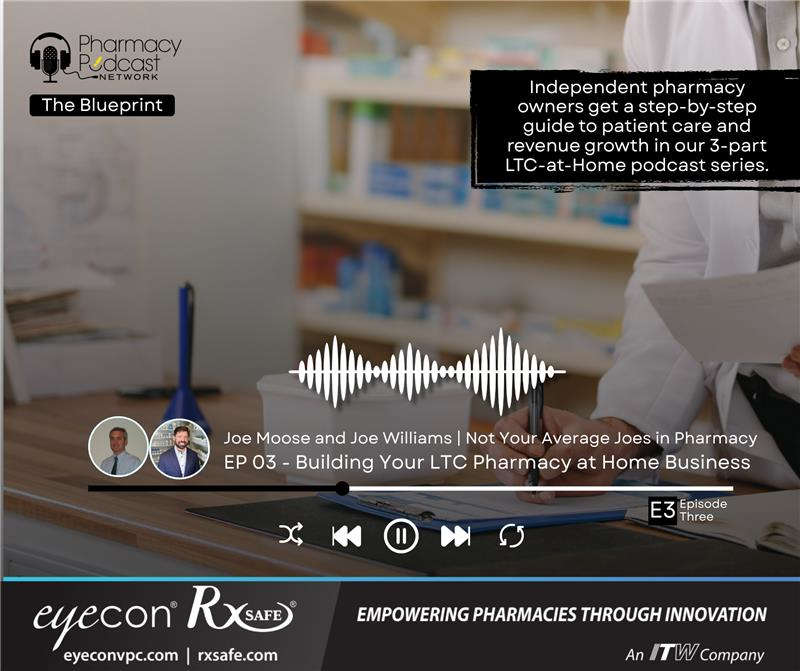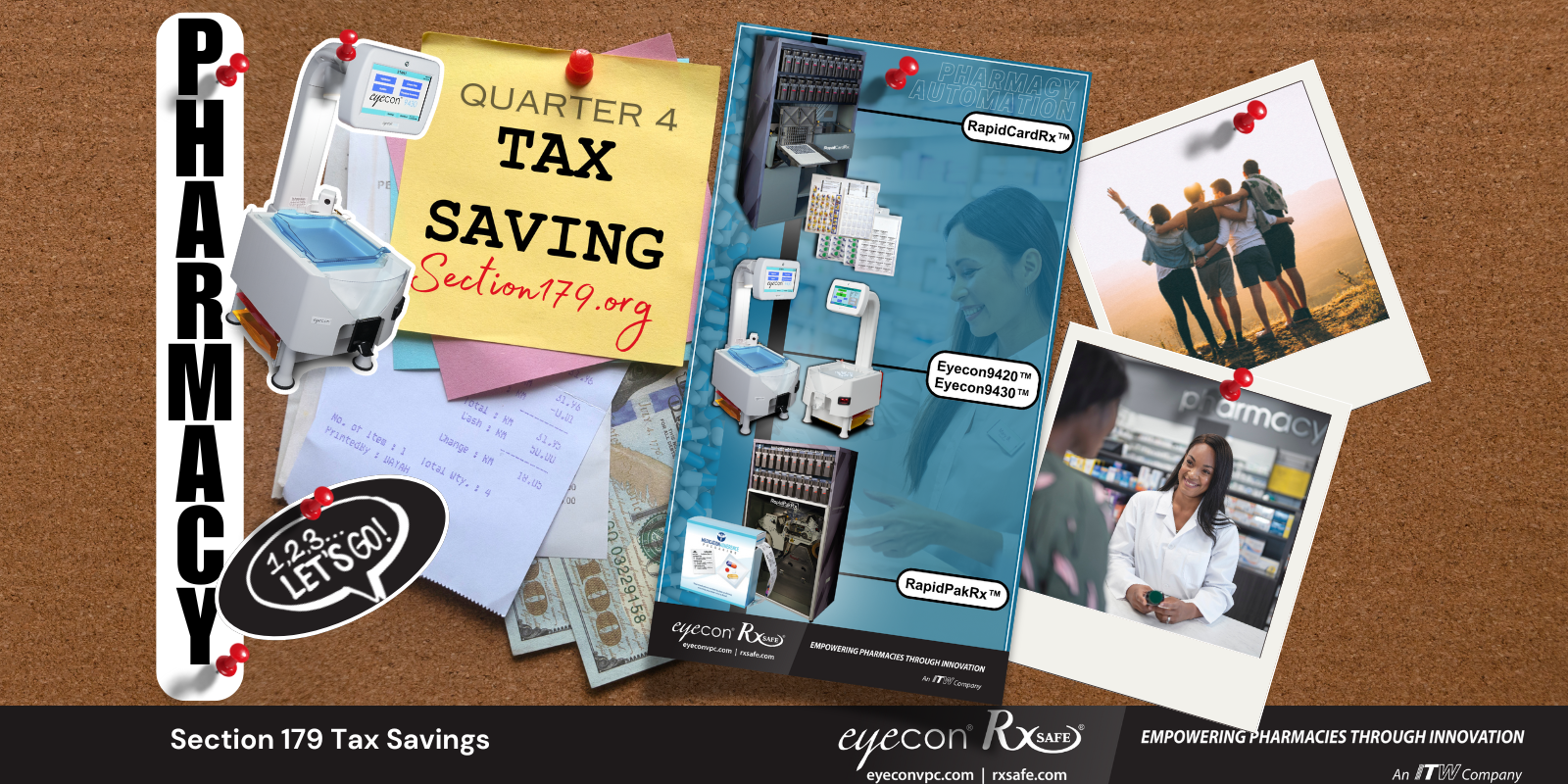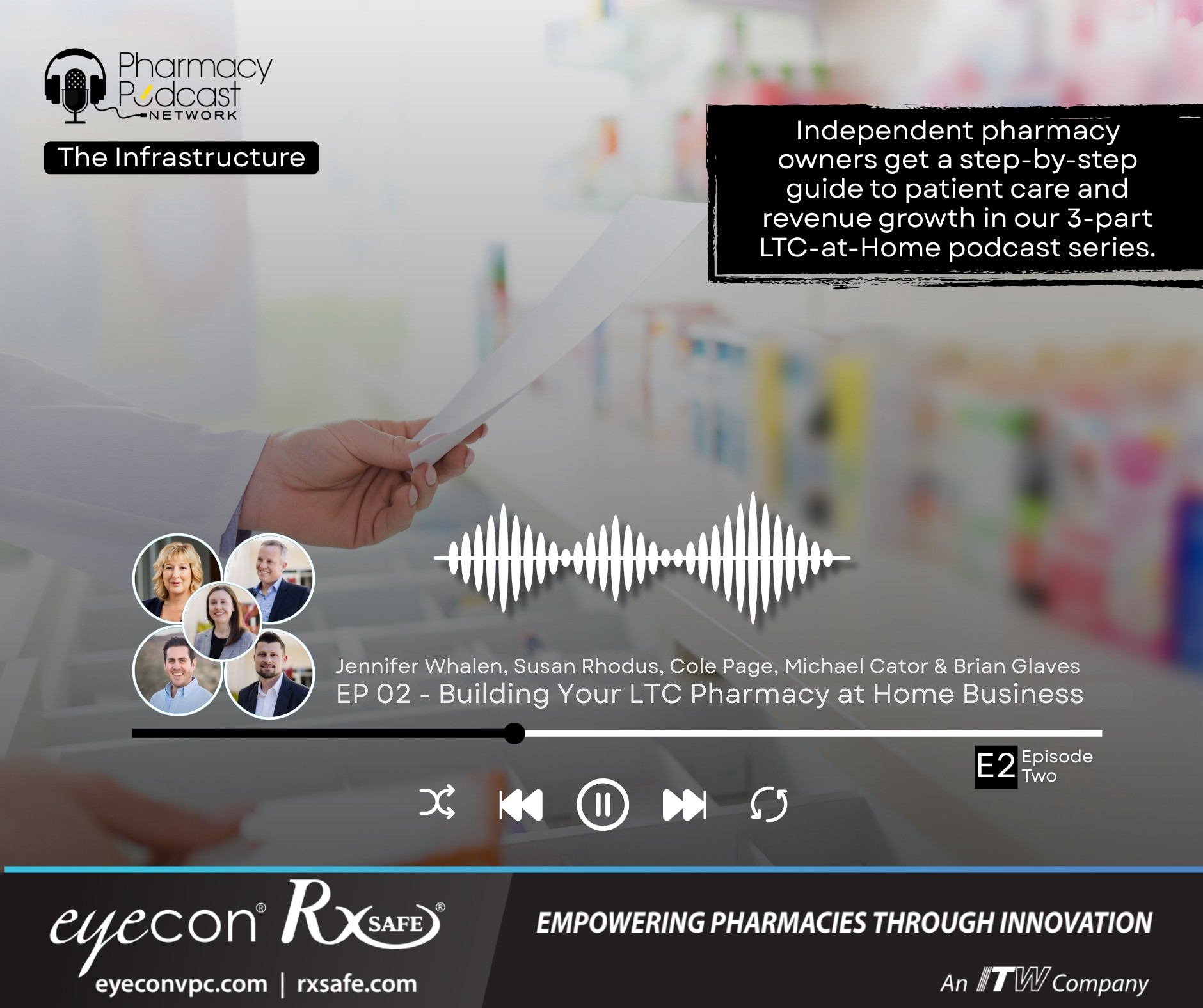In 2018, Amazon purchased online startup PillPack for approximately $750 million. Prior to this acquisition, pouch packaging was not a popular or common service that pharmacies offered.
Some independent pharmacists believed that pouch packaging was just a “trend” that would fade away.
Now, as we start 2021, one thing is clear -- pouch packaging is a preferred solution for many patients -- and the coronavirus is only accelerating this trend. Listen to Joe Williams, PharmD, owner of Brisson Drugs, and Roberta Vining, PharmD, owner of Riley’s Drug, explain how they have grown their pharmacies using pouch packaging, enabled by the RapidPakRx.
How PillPack is Changing the Game
Amazon’s Pillpack left some independent pharmacists feeling nervous about losing patients to the mail-order giant. Instead of feeling defeated, Williams found a creative way to use the new competition to his advantage.
“PillPack is getting the word out and letting folks know that there's the opportunity to be in compliance packaging,” says Williams. Amazon has the ability to market to millions of patients across the country, which helps improve the popularity of pouch packaging services.
“What PillPack is not going to be able to do is have that local touch and local relationship that so many of us have inside of our own pharmacies,” adds Williams. In other words, with growing interest in pouch packaging, independent pharmacies have the opportunity to reach their community first.
“PillPack has definitely paved the way for us,” agrees Vining. “I find myself thinking are prescription bottles going to be a thing of the past in the near future?”
Pouch packaging continues to gain popularity among patients who struggle with multiple medications. Some patients are even switching from bulky blister card packaging, to convenient pouch packaging.
Improving Adherence with Pouch Packaging
“Fifteen years ago we began to offer just the cold-seal blister card packaging,” says Vining. “It was a great step in the right direction to encourage compliance.”
Before pouch packaging, blister cards were the most common solution provided to patients who struggle to properly take multiple medications. Despite some benefits, blister cards are very bulky and are difficult for many patients to manage. Making errors is a common problem among blister card patients, with some reporting that they struggle to properly adhere.
“Once we moved to pouch packaging, we had to get a little bit more intimate with the details in terms of the time patients need to take their medications,” says Vining. “I've seen patients who I've known for years, who I thought were compliant, were actually not as compliant as I thought they were,” says Vining.
Patients on blister packaging can still struggle to take their medications at the correct time. Adherence pouch packaging includes the date and time the medications need to be taken directly on the pouch, decreasing the chance for patient errors.
“Pouch packaging gives the patient solutions for how to make their medication regimen work for them, for their lifestyle, or for their family,” says Vining.
A New Marketing Tool
Independent pharmacies are facing increasing competition. Standing apart from the competition can be done using pouch packaging automation such as the RapidPakRx.
“The RapidPakRx has been one of the best marketing tools that I have ever had, and I'm not just referring to the absolutely wonderful collaboration and care that we've had from the RxSafe marketing team,” says Williams.
According to Williams, “When we go to a primary care physician, and we put our sample boxes down in front of them, they just get a higher sense of accuracy and a higher level of care when we show them the box.”
With pouch packaging, physicians and assisted living staff feel more confident that their patients are getting the best care, he explains. When comparing blister cards to pouch packaging, it is clear that pouches are easier to guide patients to correctly take their medication.
“Once providers start referring patients to you, you almost have to put the brakes on to get them to stop sending new patients to you,” Williams adds. A nice ‘problem’ to have!
To listen to the full podcast, please click on the play button above. For more information regarding the RapidPakRx, please visit our product page or call (877) 797-2332.


.png)





